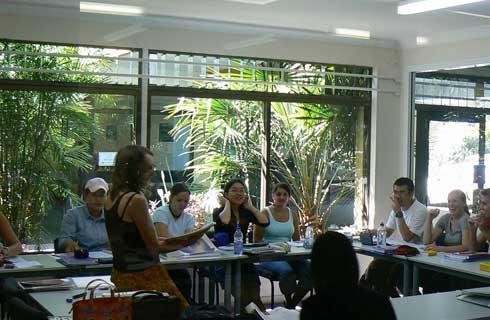- IDP China>
- 课程库>
- 计算机科学>
- 计算机与信息科学>
- 计算机与信息科学概述>
- Doctor of Philosophy in Computing and Information Sciences- HCI and Accessibility
Doctor of Philosophy in Computing and Information Sciences- HCI and Accessibility

学历文凭
Ph.D.

专业院系
Department of Computing and Information Sciences

开学时间

课程时长

课程学费

国际学生入学条件
IDP—雅思考试联合主办方

雅思考试总分
6.5
- 雅思总分:6.5
- 托福网考总分:88
- 托福笔试总分:160
- 其他语言考试:PTE Academics - 60
CRICOS代码:
申请截止日期: 请与IDP联系 以获取详细信息。
课程简介
相关申请
 预科
预科 奖学金
奖学金 实习机会
实习机会 在校学习
在校学习 跨境学习
跨境学习 校园授课-线上开始
校园授课-线上开始 在线/远程学习
在线/远程学习
开学时间&学费
学费信息仅供参考,请与IDP联系以获取详细信息
| 开学时间 | 时长 | 学费 | 地点 |
|---|
学校排名

世界排名601
数据源:
泰晤士高等教育世界大学排名
本校相关课程

土木工程技术理学学士
学历文凭
Bachelor Degree
开学日期
课程费用总额


计算机工程技术理学学士
学历文凭
Bachelor Degree
开学日期
课程费用总额


电气工程技术科学学士学位
学历文凭
Bachelor Degree
开学日期
课程费用总额


机电工程技术理学学士
学历文凭
Bachelor Degree
开学日期
课程费用总额


Bachelor of Science in Environmental Sustainability, Health and Safety (Co-op)
学历文凭
Bachelor Degree
开学日期
课程费用总额


机械工程技术科学学士学位
学历文凭
Bachelor Degree
开学日期
课程费用总额

其他相关课程

计算机科学学士-信息系统(荣誉学位)
 康考迪亚大学
康考迪亚大学学历文凭
Bachelor Degree with Honours
开学日期
课程费用总额


信息哲学博士
 多伦多大学
多伦多大学学历文凭
Ph.D.
开学日期
课程费用总额


信息硕士
 多伦多大学
多伦多大学学历文凭
Masters Degree
开学日期
课程费用总额


应用信息技术证书
 温莎大学
温莎大学学历文凭
Bachelor Degree
开学日期
课程费用总额


计算机科学学士-信息系统
 康考迪亚大学
康考迪亚大学学历文凭
Bachelor Degree
开学日期
课程费用总额


乔治布朗学院区块链开发证书
 乔治布朗学院
乔治布朗学院学历文凭
Graduate Certificate
开学日期
课程费用总额










 美国
美国
